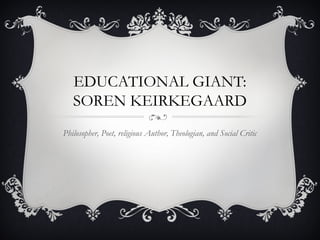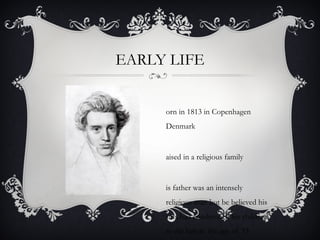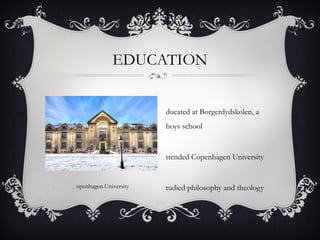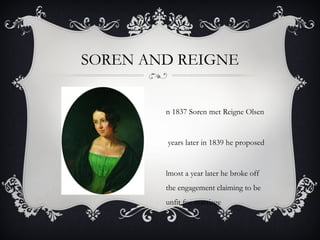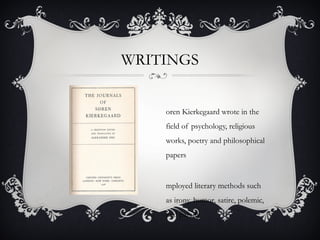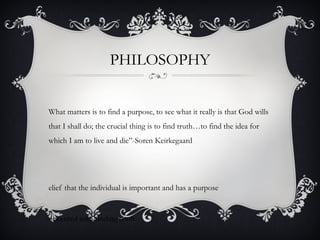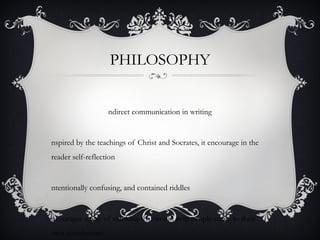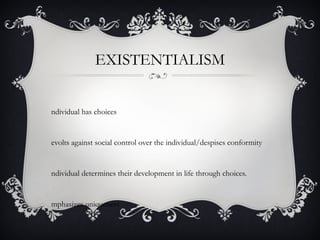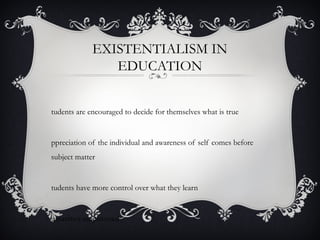Educational giant soren keirkegaard powerpoint
- 1. EDUCATIONAL GIANT: SOREN KEIRKEGAARD Philosopher, Poet, religious Author, Theologian, and Social Critic
- 2. EARLY LIFE orn in 1813 in Copenhagen Denmark aised in a religious family is father was an intensely religious man but be believed his sins had condemned his children to die before the age of 33
- 3. openhagen University EDUCATION ducated at Borgerdydskolen, a boys school ttended Copenhagen University tudied philosophy and theology
- 4. SOREN AND REIGNE n 1837 Soren met Reigne Olsen years later in 1839 he proposed lmost a year later he broke off the engagement claiming to be unfit for marriage
- 5. WRITINGS oren Kierkegaard wrote in the field of psychology, religious works, poetry and philosophical papers mployed literary methods such as irony, humor, satire, polemic, and parady.
- 6. PHILOSOPHY What matters is to find a purpose, to see what it really is that God wills that I shall do; the crucial thing is to find truthŌĆ”to find the idea for which I am to live and dieŌĆØ-Soren Keirkegaard elief that the individual is important and has a purpose oncerned with finding truth.
- 7. PHILOSOPHY ndirect communication in writing nspired by the teachings of Christ and Socrates, it encourage in the reader self-reflection ntentionally confusing, and contained riddles ncourages a way of thinking that would help people come to their own conclusions.
- 8. EXISTENTIALISM ndividual has choices evolts against social control over the individual/despises conformity ndividual determines their development in life through choices. mphasizes uniqueness
- 9. EXISTENTIALISM IN EDUCATION tudents are encouraged to decide for themselves what is true ppreciation of the individual and awareness of self comes before subject matter tudents have more control over what they learn umanities emphasized
- 10. EXISTENTIALISM IN EDUCATION tudents are encouraged to decide for themselves what is true ppreciation of the individual and awareness of self comes before subject matter tudents have more control over what they learn umanities emphasized

